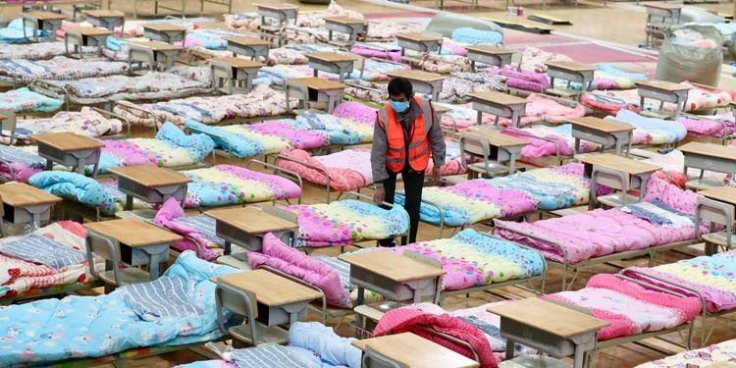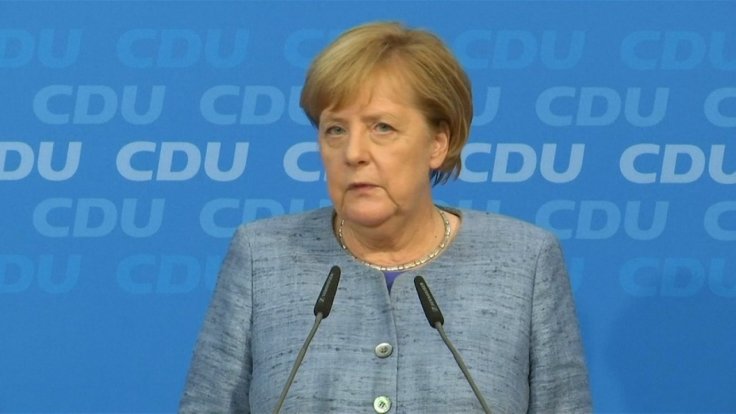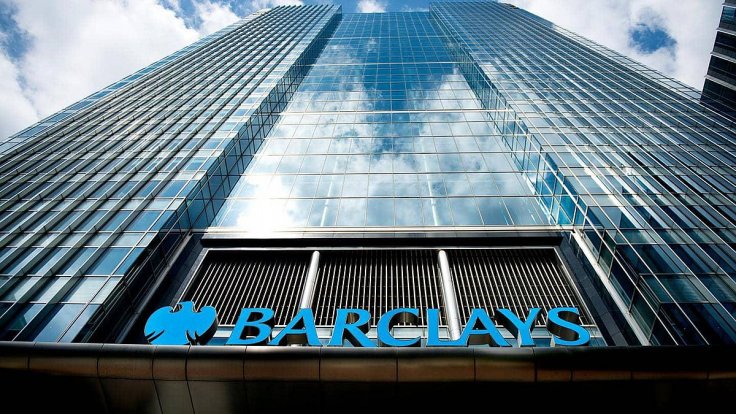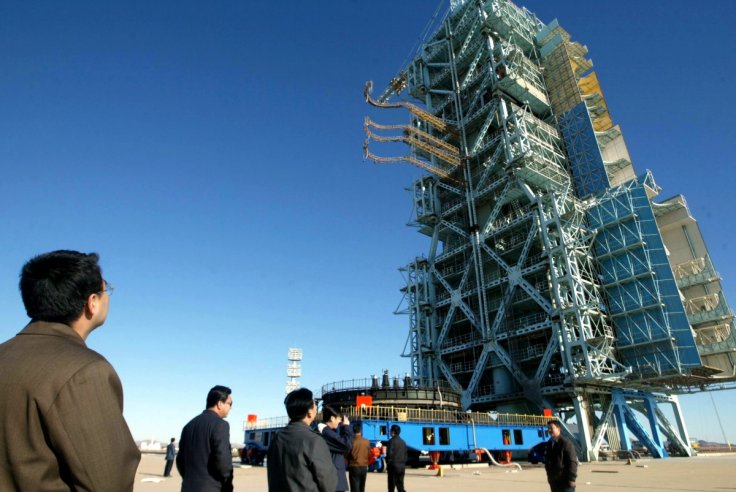Celebrated economist Nouriel Roubini, who predicted the subprime crisis of 2007-2008 and the subsequent credit crunch that sent the global economy into a tailspin, predicted in 2018 that the next big global recession would come in 2020. The coronavirus outbreak, was not, of course, a piece in that prediction. 'Dr. Doom' predicted that US-China trade war and a rise in oil prices could trigger a global recession in 2020. However, the Wuhan virus outbreak, which is on an unabated march and looks to kill more than 2000 people, has made global recession fears more grim and real.
Here's a look at how the major economies are faring and how they are poised to perform in 2020.
CHINA
The Chinese economy is grinding to a halt, after battling with the virus, officially named COVID-19 for about two months. Re-starting economic activity and sending people to the factories and markets remain a big challenge even as the deadly virus has shown no sign of full and final retreat.

The Wuhan virus hit the Chinese economy at a time when it actually shown signs of slowing down, basically owing to the US-China trade war. The coronavirus outbreak accelerated the downward spiral. China's central bank has taken steps to spur demand by loosening monetary policy. But you can't expect domestic consumption to drive the economy in a scenario when megapolises are under lockdown and vast hordes of people across the mainland are sitting inside homes doing nothing.
And, China will be in for a greater shock once the epidemic subsides. Multinational companies will want to take this as an opportunity to recalibrate their supply chain, which is mostly dependent on Chinese factories. Rising Chinese wages and increasing brushes with Donald Trump-led United States on the trade front have been prompting multinational players to reduce dependence on China. The supply chain meltdown following the coronavirus will give them room to execute that plan albeit partially. China will be hit the hardest if global companies look elsewhere to make their products.
SINGAPORE

Singapore flagged recession in 2020 when it cut growth forecasts on Monday, owing to the impact from the coronavirus outbreak. The island nation's GDP growth was revised from to -0.5 percent to 1.5 percent, from 0.5 percent to 2.5 percent previously. "The outlook for the Singapore economy has weakened since the last review... In particular, the COVID-19 outbreak is expected to affect the Singapore economy," the government said on Monday. "We are mindful that there is a risk of a technical recession," a top official added.
JAPAN

The economy of Japan shrank at the fastest pace in almost six years. The country's gross domestic product (GDP) shrank by an annualised 6.3 percent in the October-December period, showing that it is on the the brink of recession.
"There's a pretty good chance the economy will suffer another contraction in January-March. The virus will mainly hit inbound tourism and exports, but could also weigh on domestic consumption quite a lot," said Taro Saito, an executive research fellow at NLI Research Institute in Japan. Economists at ING have said Japan could slip into recession this quarter. Danske Bank said recession is possible, taking a cue from gloomy Japanese GDP figures.
GERMANY

Germany, the world's fourth largest economy, said last week the economy registered zero growth in the final three months of 2019. Now the country is staring at a recession owing to the coronavirus outbreak. Germany's economy mostly depends on exports to China for its growth. With an awful demand environment in China, Germany's manufacturing sector is looking down the barrel.
"The impact from the coronavirus on the Chinese economy is likely to delay any rebound in the manufacturing sector as it at least temporarily disrupts supply chains," Carsten Brzeski, chief German economist at ING, said, according to the Guardian.
EUROZONE

The virus outbreak has made a Eurozone recovery almost impossible in the near-term. The Eurozone gross domestic product (GDP) grew by just 0.1 percent in the last three months of 2019. "The [eurozone] economy should be about to turn a corner, but the coronavirus now means that [the first quarter] could well be a write-off," said Claus Vistesen, chief eurozone economist at Pantheon Macroeconomics told CNN.
UNITED KINGDOM

Britain's economy had hit a bad patch at the end of the year owing to the political uncertainty and the Brexit shock. The lethargic eurozone and world trade tension had also affected the UK growth. The economy shrank by 0.3 percent in November but it bounced back with 0.3 percent growth in December. But the rising threat of global trade disruption from the impact of the Coronavirus will hit the economy further.
SOUTH KOREA

South Korea's economy is bracing for the ugly impact of the virus outbreak next door. The Bank of Korea Governor Lee Ju-yeol said the central bank is working on financial aid packages to minimise the economic fallout of the new coronavirus outbreak in China. The market hopes the central bank will cut its key rate. The finance ministry has already given a 2 trillion won (US$1.7 billion) aid package to support small merchants hit by the virus outbreak.
RUSSIA

China is fairly free of the virus threat, but its economic linkages with China makes its economy vulnerable to an extent. China accounts for more than 12 percent of all Russian exports. The falling oil demand in China will be a matter of concern for the Russians. Another front on which the Russians will suffer is tourism. China sends the largest contingent of tourists to Russia. Russia this year is bracing for a significant erosion in Chinese tourist numbers. In a regular year, China sends as many as the 1.3 million tourists to Russia.
INDIA
India has been battling many challenges,, such as inflation, slow demand, low income growth and downsides in major industries like the autos when the coronavirus hit the global economy. On Monday, Moody's Investors Service cut India's 2020 growth projection to 5.4 percent from 6.6 percent earlier. Overall, the coronavirus outbreak has diminished hopes that Indian economy would turn around quickly from a bad 2019. Many segments of India's industry are bracing for supply-side disturbances due to the China paralysis. "If the outbreak continues for longer than anticipated then the risk will not be restricted to a few sectors, but it can hurt the overall economy," said Sunil Damania, CIO of MarketsMojo.com, told Reuters.
SAUDI ARABIA
Saudi Arabia, the world's top oil exporter, will feel the pinch from the slowing demand across the world, which will soon translate into low oil prices. The gloomy global outlook has already seen crude pries tumbling. However, Saudi Arabia insists that the impact will be short-lived, saying that the 2003 outbreak of SARS had roiled markets but the recovery was quick. OPEC has already downwardly revised its global oil demand growth outlook.
INDONESIA

Indonesia's economy expanded by 4.97 percent on an annual basis in the last quarter, marking the its slowest growth rate in three years. "Investment growth would still be low given that global uncertainty continues and also with the coronavirus putting pressure on the Chinese economy," --Josua Pardede, an economist at Bank Permata, told Reuters.








